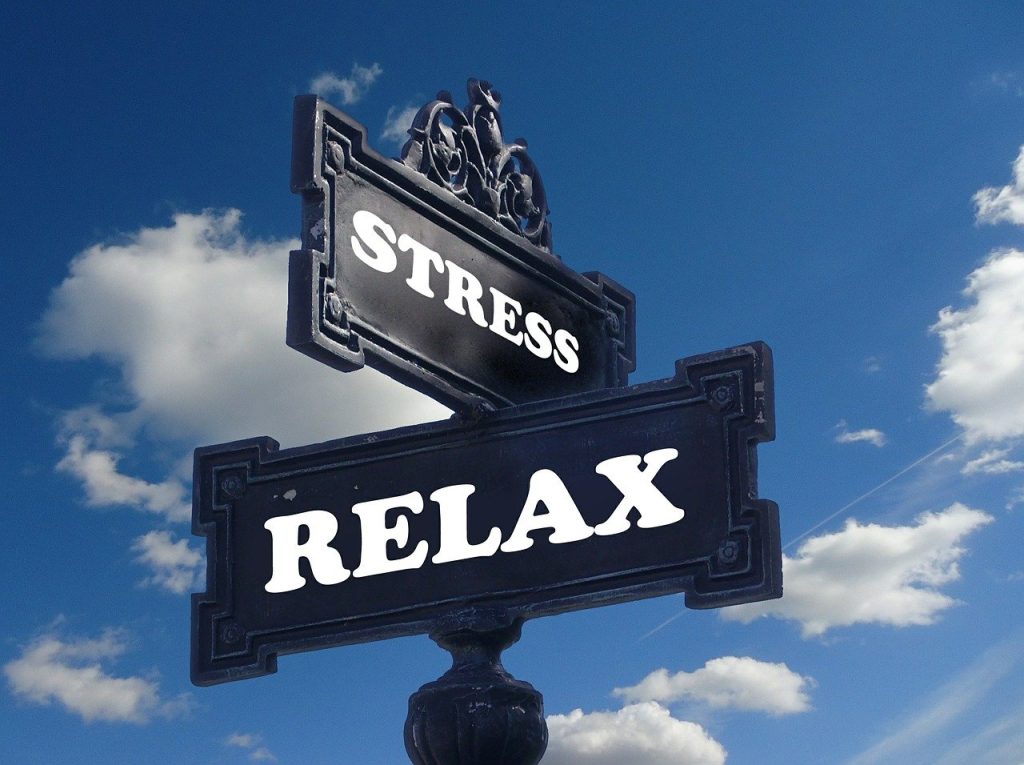We all stress! Did you know that? Stress is a universal experience of our body’s response to the things that happen in our lives. Stress can manifest in various ways, some helpful, some harmful and the more understanding we have on how we process stress is essential for our overall well-being and longevity. April is Stress Awareness Month.
Stress is our physical or mental response to an external cause and can be categorized into two types: positive stress and negative stress (distress), according to The National Institute of Health (NIH) (https://www.nimh.nih.gov). “Positive” stress can motivate us for better outcomes, while negative stress can lead to worse outcomes. Positive stress can result in finishing a project on time, while negative stress can lead to anxiety and health issues. The Clevland Clinic, (https://my.clevelandclinic.org) a nonprofit multispecialty academic medical center, which integrates clinical and hospital care with research and education shares a deeper dive into stress, breaking it into three other categories: acute (short-term), episodic acute (continuous short-term stress) and chronic (long-term stress). No matter what type of stress you are facing, when our bodies sense stress, it triggers our autonomic nervous system, which you may recognize as the center of the body that has the built-in stress responses of “fight-or-flight” that help our bodies when they face these stressful situations.
When our bodies are sensing a stressful situation, they release hormones like cortisol and adrenaline, initiating a reaction that prepares us to deal with perceived threats but can also lead to long-term health problems if not managed effectively. In fact, chronic stress has been linked to numerous health issues, not limited to cardiovascular disease, obesity, diabetes, and mental health disorders like depression and anxiety. According to the American Psychological Association (APA) (www.apa.org), prolonged exposure to stress can weaken our immune system and increase susceptibility to illnesses. High levels of chronic stress are also associated with increased mortality rates and a significant increase for premature death.
You may also be wondering, what is the difference between stress and anxiety? Both terms are commonly used and sometimes worn as a badge of honor. It’s easiest to think of stress as the physical or mental response to an external cause, such as having a lot of tasks to do or a recent diagnosis. Whereas anxiety is the reaction to an internal cause, thought, or worry about something that may or may not occur.
Thankfully, our habits, mindset, and lifestyle play a pivotal role in in how our bodies will determine whether a stressor is perceived as “positive” or “negative.” Ideally, we all get to a place in our stress management where we can use our STRESS acronym for a healthier, happier, and longer life:
S(elf-care)-T(ake breaks) – R(ely) on others)- E(educate and explore options)- S(eek support) S(upport others)
Self-care: Prioritize activities that promote physical and mental well-being. This includes prioritizing the basic needs of nourishment, proper sleep and rest, focus, physical activity, play, and even setting healthy boundaries.
Take breaks: Taking a break to breathe before you say your next words can be life changing! The most minimal break we can take is to breathe more. However, real breaks should be taking time away from stressful situations, and being responsible for saying, “I need a break.”
Rely on others – Being part of a community is life changing and life giving. Loneliness and isolation are shown to decrease life expectancy. Get to know your neighbors, coworkers, etc. Join something, anything! Find a few to rely on!
Educate and explore – Everyone has stress. It’s time to recognize our limits and what our needs are before we hit them. Plan your strategies for what to do if you are getting “stressed,” hitting limits, or needing support.
Seek Support – in todays culture there is no reason that everyone isn’t treating their mental health and wellbeing as seriously as their physical health and wellbeing. Everyone and anyone can benefit from therapy and/or counseling, especially during non-stressful times! This is a great tool to learn more about yourself, your communication style, relationships, and to see more self-understanding. Find someone to be your supporter, a therapist, counselor, pastor, mentor, etc.
Supporting others – Being an ally to humanity means having emotional intelligence, empathy, compassion, patience and understanding. Assume good intent of others. Especially those who are in known difficult times, lacking support, or being vulnerable – be kind.
Kindness goes a long way. When you are kind to yourself, you offer yourself the space to be human, feel your feelings, react, and recover, and it’s also offering the same to others. Kindness is validating we all have stress, good days and bad, and that some people are experiencing stress response that their nervous system is controlling beyond their current control. Wonderfully, kindness can release oxytocin, a hormone that can reduce stress hormones. During this month of April, as we take the acronym STRESS to heart, commit to our own stress management, let us also try to offer more kindness to counteract the impacts of stress all around us. Perhaps it’s just that easy, using kindness as our first step towards reducing stress for ourselves, our friends, loved ones, and everyone around us, because after all, we all stress!


